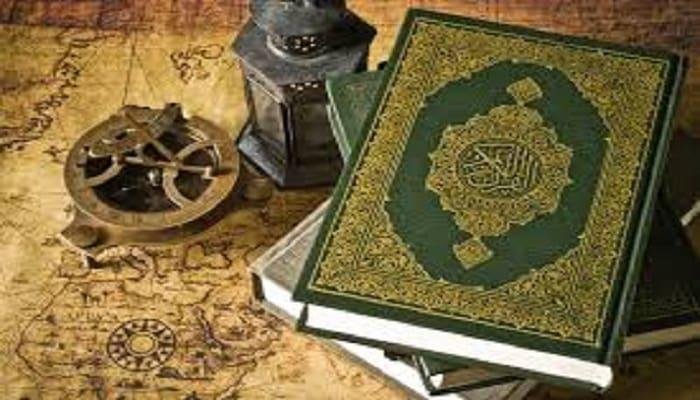
Al Fiqri Ardiasnyah, S.Ag
For Muslims, the Qur’an is the final revelation, absolute and transcendent. In the West, however, the text is often placed within an academic framework that is fundamentally different from the perspective of faith. Western scholars tend to treat the Qur’an as a historical, literary, and religious document, comparable to other scriptures. This orientation has produced diverse approaches—some enriching the field of Qur’anic studies, but others stirring deep controversy both within academia and in the public sphere.
The study of the Qur’an in the West can be traced back to the classical orientalist era, when European scholars approached the text through philology and comparative religion. Richard Bell, in his Introduction to the Qur’an (1953), attempted to dissect the structure of surahs, while William Muir emphasized biographical accounts of the Prophet Muhammad colored by colonial biases. At this stage, scholarship was often polemical and far from neutral.
By the twentieth century, however, Qur’anic studies in the West began to evolve methodologically. Angelika Neuwirth emphasized literary analysis, viewing the Qur’an as a “communal scripture” shaped in dialogue with early Arab culture. Nicolai Sinai and Gabriel Said Reynolds highlighted the Qur’an’s relationship with Jewish and Christian traditions, framing revelation as part of a larger conversation among monotheistic scriptures. While such approaches are more rigorous and systematic, they remain controversial, since they risk undermining the Qur’an’s transcendent dimension as understood in the Muslim tradition.
The greatest controversies erupted with the rise of revisionist scholarship in the 1970s. John Wansbrough’s Quranic Studies and Patricia Crone and Michael Cook’s Hagarism argued that the traditional Islamic narrative of the Qur’an’s origins could not be historically verified. Drawing on epigraphy, archaeology, and non-Arabic sources, they suggested that the Qur’an was a historical product compiled over time, rather than a final revelation delivered to the Prophet Muhammad across twenty-three years. To many Muslims, these claims appeared deeply offensive, as they seemed to relativize divine revelation itself.
The debate intensified with the publication of The Qur’an of the Historians in 2019, edited by Guillaume Dye and Mohammad Ali Amir-Moezzi. This massive volume situates the Qur’an within the context of Late Antiquity, comparing it with Jewish, Christian, Zoroastrian, and gnostic literature. Within Western academia, the book was hailed as groundbreaking. For many Muslims, however, it represented a form of “secularizing” the sacred, treating the Qur’an as little more than a historical artifact. Here lies a profound epistemological divide: the West privileges historical-critical frameworks, while Muslims emphasize the Qur’an’s divine authorship.
This tension has not remained within the ivory tower. It spills into the political and social domain, where the Qur’an becomes a symbol of identity conflict. The Qur’an burnings in Sweden and Denmark in 2023 triggered global protests. Similar incidents took place in London in 2025 and in Texas, where a political candidate staged a Qur’an burning as anti-Islam propaganda. These events reveal that in the West, the Qur’an is not only an object of scholarly inquiry but also a political instrument wielded in debates over free speech, multiculturalism, and national identity.
Muslim responses to these developments are divided. Many scholars and clerics categorically reject the historical-critical approach, regarding it as an intellectual extension of colonialism. They insist that the Qur’an must be studied through classical exegesis and theology. Yet others seek to bridge the divide. Muhammad Abdel Haleem’s The Qur’an: A New Translation (2004), for example, offers a rendering sensitive to linguistic nuance while still engaging with academic discourse. Mustansir Mir and Ayesha Hidayatullah likewise promote critical readings that remain rooted in faith. Such efforts reflect a “double perspective”—a balance between emic (internal, faith-based) and etic (external, objective) approaches.
In my view, Western scholarship on the Qur’an should not be seen solely as a threat. If managed wisely, it can serve as an opportunity for dialogue. Western academics must recognize the religious sensitivities of Muslims, ensuring that critical inquiry does not degenerate into public provocation. At the same time, Muslims must participate actively in global academic forums with works that are both rigorous and faithful. As long as discourse is dominated by Western paradigms alone, Muslim voices will remain marginalized. The Qur’an in the West is thus a site of encounter between faith and modern critical inquiry. The controversies it sparks are not merely methodological but also cultural and political. We may choose to see them as insurmountable conflicts, or as invitations to dialogue. I argue for the latter. Through active Muslim engagement in global scholarship, controversy can become dialectic, and dialectic can enrich understanding. Ultimately, the Qur’an will continue to speak across time and civilizations—open to reading, interpretation, and debate, whether in the East or the West.